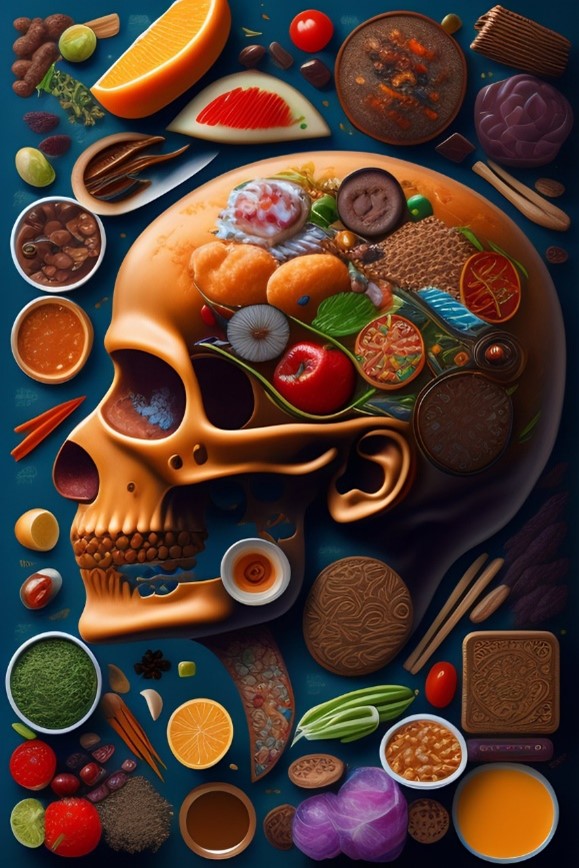Have you ever had a “gut feeling” or noticed butterflies in your stomach? These sensations can be explained by a fascinating network called the brain-gut-microbiome axis. Imagine a well-choreographed performance affecting not only your digestion, but potentially your mood and overall well-being. Let’s sneak behind the scenes of our ‘second brain’ to reveal the secrets of this complex interaction.
The connection
When we think about our gut, we think about the machine responsible for breaking down food and taking the nutrients where they should be. Recent studies have revealed that the gut is constantly communicating with the brain in a dynamic dialogue. This bidirectional highway influences our digestion, emotions, and mental health.

The internal ecosystem: gut microbiota
Now, let’s enter the gut microbiota, a restless community of microorganisms living in your digestive system. These consist of bacteria, viruses, and fungi. The composition of this ecosystem has great influence on our body, from immune processes to mental well-being.
Recent breakthroughs in neuroscience have highlighted the role of the microbiome in influencing brain function. The gut microbes produce molecules that affect the brain and its functions (such as neurotransmitters and the final product of the digestive process). This suggests that the health of our gut may have profound implications for our mental health.
Taking care of your guests
Since you are the choreographer, you can create a healthy and nurturing environment for these bacteria. What you decide to eat isn’t just about satisfying cravings; food is a key player in maintaining harmony in the brain-gut-microbiota relationship. So, how can you make your diet friendly to these amazing living beings?

- Probiotics, Your Microbial Allies: These are friendly bacteria that will help to maintain a diverse healthy microbial community. Yogurt, kefir, and fermented foods like cheese are great sources of probiotics.
- Prebiotics, the Microbe Buffet: The banquet for your gut bacteria! They provide the necessary support that microbes need to thrive and keep the communication lines open. Foods like garlic, onions, bananas, and asparagus are full of prebiotics. Also found in fiber-rich foods, your microbes’ favorite snack!
Conclusion
Our understanding of the brain-gut-microbiota axis has led us to knowing that it takes center stage in the performance of your health. By appreciating the connection between them, you can potentially improve your overall well-being from digestion to behavior. So, let your diet be the main character and embrace the fascinating dance within you!
To read more, the links for related articles in our blog are available here:
Did You Know That Alcohol Abuse Could Damage Intestinal Microbiota? https://newbrainnutrition.com/did-you-know-that-alcohol-abuse-could-damage-intestinal-microbiota/
The Gut Microbiome, The Brain, And Cognitive Development In Infants https://newbrainnutrition.com/the-gut-microbiome-the-brain-and-cognitive-development-in-infants/
How Do We Learn If Disturbances In Gut Microbiota Cause Behavioral Problems? https://newbrainnutrition.com/how-do-we-learn-if-disturbances-in-gut-microbiota-cause-behavioral-problems/
References:
- Mayer, E. A. (2011). Gut feelings: the emerging biology of gut–brain communication. Nature Reviews Neuroscience, 12(8), 453-466.
- Thursby, E., & Juge, N. (2017). Introduction to the human gut microbiota. Biochemical Journal, 474(11), 1823-1836.
- Cryan, J. F., & Dinan, T. G. (2012). Mind-altering microorganisms: the impact of the gut microbiota on brain and behaviour. Nature Reviews Neuroscience, 13(10), 701-712.
Sonnenburg, J. L., & Sonnenburg, E. D. (2014). Starving our microbial self: the deleterious consequences of a diet deficient in microbiota-accessible carbohydrates. Cell metabolism, 20(5), 779-

